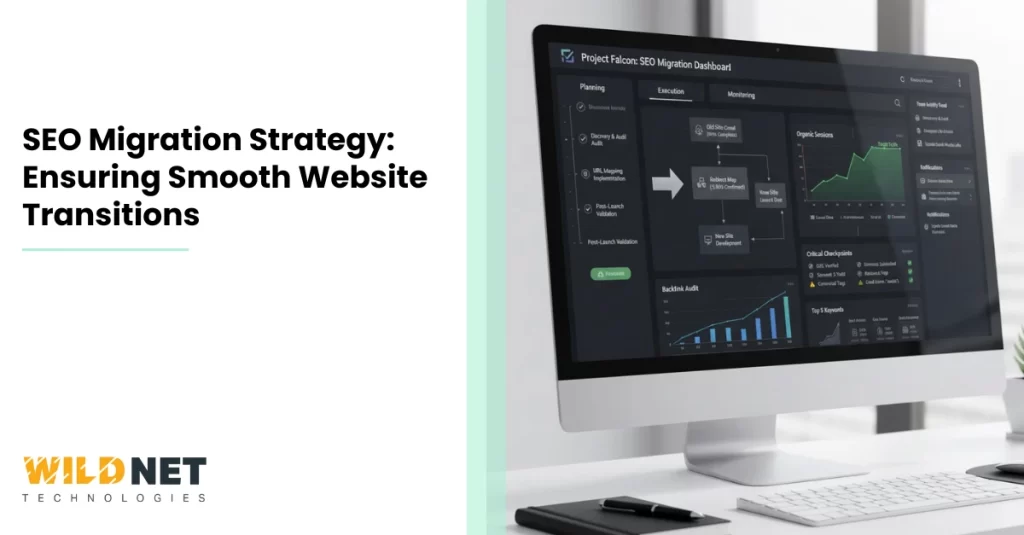Anchor text plays a crucial role in SEO by guiding users and search engines to understand the context of linked pages. From improving rankings to enhancing user experience, anchor text can significantly influence your website’s visibility.
When businesses invest in SEO services or broader digital marketing services, anchor text is one of the most overlooked and influential ranking factors. Whether building backlinks, interlinking content, or improving user experience, the proper anchor text optimization can make or break your SEO efforts.
But what exactly is anchor text, and how does it impact search rankings? In this comprehensive guide, we’ll cover the meaning of anchor text in SEO, different anchor text types, examples, best practices, and even common mistakes to avoid.
What is Anchor Text?
At its core, anchor text is the clickable link text SEO within a hyperlink. It guides users on what to expect when they click and helps search engines understand the target page’s content.
Here’s a simple anchor text code example:
<a href=”https://example.com/seo-services”>Professional SEO Services</a>
- The HTML <a> tag is called an anchor tag in SEO.
- “Professional SEO Services” is the hyperlink anchor text.
- The link points to a relevant page.
If you’ve ever asked, “What is anchor text?” or “define anchor text,” this is the simplest definition: the descriptive HTML link anchor connects one page to another.
What is an Anchor Text Moz
Anchor text, as defined by Moz, is clickable text within a hyperlink that helps both users and search engines understand the context of the linked page. It plays a vital role in SEO by indicating relevance, improving user experience, and distributing ranking authority. Moz highlights that optimized anchor text—whether exact match, branded, or descriptive can significantly impact how well a page performs in search results.
Why Anchor Text Matters in SEO
The connection between anchor text and SEO is strong. Google uses link anchor text as a ranking signal to evaluate a page’s relevance to specific keywords. In fact, the original Google PageRank algorithm heavily relied on anchor tags SEO to determine a site’s authority.
Benefits of Optimized Anchor Text:
- Improves Rankings – Properly optimized backlink anchor text can help your site rank for target keywords.
- Enhances User Experience – Clear descriptive anchor text tells users precisely what they’ll find.
- Boosts Link Authority – Balanced anchor text distribution spreads ranking power across your site.
- Strengthens Internal Linking – Smart anchor link SEO helps search engines crawl your site more effectively.
For instance, if multiple authoritative sites link to your page with the anchor text HTML code “best digital marketing services,” Google is more likely to rank your page higher for that term.
Types of Anchor Text
There are several anchor text types, and each plays a unique role in SEO anchor text strategy.
1. Exact Match Anchor Text
The backlink anchor text includes the exact keyword you want to rank for.
Example: <a href=”/anchor-text-optimization”>Anchor Text Optimization</a>
2. Partial Match Anchor Text
Uses a variation of the keyword.
Example: <a href=”/anchor-text-tips”>SEO Anchor Text Tips</a>
3. Branded Anchor Text
Mentions the brand name.
Example: <a href=”/wildnet-technologies”>Wildnet Technologies</a>
4. Generic or Non-Descriptive Anchor Text
Phrases like “click here” or “read more.” This non-descriptive anchor text adds no context.
5. Descriptive Anchor Text
Clearly states what the page is about.
Example: “Download our guide on anchor text types.”
6. Naked Link Anchor
Shows the raw URL.
Example: <a href=”https://example.com”>https://example.com</a>
7. Image Anchor Text
The alt attribute acts as the link anchor text when images are linked.
Each type has its place, but a balanced anchor text distribution is essential for avoiding over-optimization.
Anchor Text Example in Practice
Imagine you’re writing a blog about SEO. Here’s a natural way to include anchor tags SEO:
“Companies offering digital marketing services often use anchor text HTML strategically to boost rankings. For instance, linking to their service page with descriptive anchor text like ‘Affordable SEO Services’ is far more effective than generic terms like ‘click here.’”
This anchor text example shows how you can use anchors naturally within content without sounding forced.
Common Mistakes in Anchor Text Optimization
While optimizing anchors, many make mistakes that can harm their rankings. Let’s explore:
- Overuse of Exact Match Anchors
Stuffing the same keyword repeatedly in backlink anchor text looks unnatural and can trigger Google penalties. - Using Too Many Generic Anchors
Excessive use of non-descriptive anchor text like “click here” provides no SEO value. - Irrelevant Anchor Text
If the link anchor text doesn’t match the content, it confuses users and search engines. - Poor Anchor Text Distribution
Over-reliance on one type (like branded or exact match) can disrupt natural linking patterns. - Ignoring Internal Linking
Many focus only on backlinks, but anchor link SEO within your site also boosts crawlability and authority flow.
Best Practices for Anchor Text Optimization
- Use Variety in Anchor Text Types
Mix exact match, partial match, branded, and descriptive anchor text for a natural link profile. - Focus on Relevance
The meaning of anchor text in SEO is all about context. Always link with relevant keywords. - Balance Distribution
Maintain healthy anchor text distribution. A typical ratio could be:
- 50% branded and URL-based anchors
- 30% partial matches
- 20% exact matches and descriptive anchors
- Write for Humans First
Don’t just stuff keywords; ensure your anchor texts’ meaning aligns with user intent. - Optimize Internal Links
When interlinking, use descriptive anchor text to guide users and search engines.
Anchor Text in HTML: Technical Side
Creating an HTML link anchor is simple:
<a href=”https://yourwebsite.com/services”>Digital Marketing Services</a>
- <a> – The anchor tag.
- href – The URL destination.
- Link text – The anchor text HTML code.
This is how developers implement anchor tags SEO within websites.
Future of Anchor Text in SEO
With AI-driven algorithms, the role of anchor text and SEO is evolving. Google now emphasizes contextual meaning rather than just exact matches.
Future trends include:
- Semantic Understanding – Google looks at the surrounding text to interpret the anchor text’s meaning.
- Entity-Based Linking – Focus shifts from keywords to topics and brands.
- Anchor Optimization for Voice Search – As voice queries rise, descriptive anchor text becomes more important.
Conclusion
Understanding anchor text definition is key to building a strong SEO strategy. Whether you’re working on SEO services for your brand or providing Digital Marketing Services to clients, anchor text HTML code can boost rankings, improve user experience, and strengthen backlinks.
Every choice From descriptive to non-descriptive anchor text affects how search engines and users perceive your site. Follow best practices, maintain healthy anchor text distribution, and focus on natural linking for long-term SEO success.
FAQs
1. What is anchor text in SEO?
In SEO, anchor text refers to the clickable words in a hyperlink that guide both users and search engines to the destination page.
2. What are the different types of anchor text?
The main anchor text types include exact match, partial match, branded, generic, descriptive anchor text, naked URLs, and image anchors.
3. How can I optimize my anchor text?
Follow anchor text optimization by balancing exact, partial, and branded anchors, avoiding over-optimization, and ensuring contextual relevance.
4. Can anchor text affect backlink quality?
Yes, backlink anchor text signals to Google the relevance of your content. Unnatural anchors can reduce quality and even harm SEO.
5. Why is anchor text important for digital marketing services?
Because anchor text and SEO are linked, optimized anchors help SEO and digital marketing services rank higher, attract traffic, and improve conversions.
Read More







